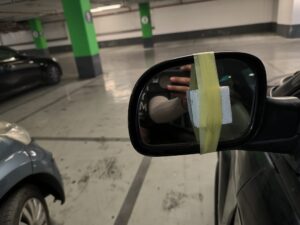Lamentably, there are times in life when things don’t go according to plan. Many times that involves lawsuits. It’s inadvisable to take on legal business without a lawyer. What do you implement when faced with constitutional action? What if you don’t have the ability to afford a lawyer to accept your case and adequately represent you? It may be you can afford an attorney, but the lawsuit is for such a nominal amount of money, it doesn’t make economic sense to hire a lawyer. What options do you have that can solve your problem?
Option 1 – Pro se legal representation is where you represent yourself. There are a lot of websites offering pro se forms for the public. Follow the directions carefully and they will assist you to prepare your response to the legal issue. Public defenders can represent you but defenders are traditionally reserved for criminal cases. Legal aid societies and volunteer lawyers are typically involved in divorces, immigration issues and custody battles.
Option 2 – Engage a lawyer, like Marsh Blom Lawyers, for a telephone or consultation. A one-hour call will be significantly cheaper than hiring a lawyer. You can get the advice, direction, guidance, and feedback you need instead of working blind. Do not seek firms who offer free consultations. Free consultations are merely designed to determine the nature of your problem and if the attorney can benefit you. What you need is advice, and that would require a more extensive session to get the full picture.
Option 3 – Hire an attorney to ghost write documents for you, carry out the research for you, prepare your case for you on paper. At that point in time, you can represent yourself with those signed documents. They can also proofread, provide suggestions or tighten up your writing.
Option 4 – Almost every city has some type of free legal clinic service that is open on a monthly, bi-weekly or weekly basis. Look in newspapers, penny savers, or online. They have real attorneys offering free legal advice and assistance.
Option 5 – Self-help centers in your county courthouses can offer assistance with your case. You will not obtain legal advice, but you can get legal information, resources, and directions on how to fill out paperwork. Be prepared to spend all day at these facilities because they are quite congested with other legal aid seekers. Remember to conduct a thorough investigation. Make use of municipal libraries and utilize their law books. You can read books, articles, blogs, and the internet.
Option 6 – Find an independent pro bono lawyer through bar associations offering free legal help. Lawyers inclined to work free of charge, or “pro bono,” are typically paired with clients who qualify for this guidance. There are also charitable organizations dedicated to supplying pro bono legal help to the qualifying needful.
Option 7 – Some lawyers offer payment plans so you don’t have to pay the legal fees up front. Request monthly installments until all you owe is paid off. This option is dependent on the law firm and its policies. It is not a specific requirement that lawyers voluntarily provide a payment plan.
Each state has designated programs to assist moderate-income people in handling legal issues without having to pay thousands. To find a program tailored to your needs, interface with the bar association of your state or search online to procure more information.
See my disclaimer.





